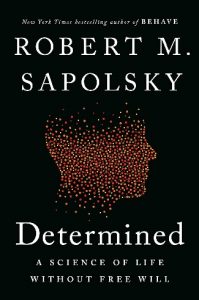Q: In Advaita, there’s the prevailing idea that you are not the mind or the body, that everything is just an appearance in the self. If I think of myself as just the conscious observer, how can I bring myself to take action and get rid of non-beneficial thoughts. If I am not the mind, then how can I tell the mind to eat healthier if that is just a thought in and of itself? Even the idea of enlightenment must happen at the level of the mind, but if conceptually I am not that, how do I go about trying to change perspectives and recurring mindsets?
Finally, if there is no free will, then how can one take action and try to grow as a person? It’s hard for me to make myself do things when I can just say, “Since there is no free will, I (consciousness) can’t really do anything because I am not the mind.”
Continue reading
